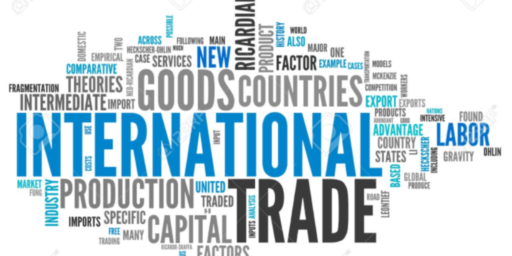From the Department of Banging Your Head Against a Wall
 Former U. S. trade representative Charlene Barshefsky has an op-ed in the Washington Post in which she points to a re-emphasis on global trade as the path to economic recovery. In the op-ed Ms. Barshefsky identifies three specific tacks:
Former U. S. trade representative Charlene Barshefsky has an op-ed in the Washington Post in which she points to a re-emphasis on global trade as the path to economic recovery. In the op-ed Ms. Barshefsky identifies three specific tacks:
- Negotiate multi-lateral trade agreements. Revive the Doha round.
- Support economic development in some of the world’s poorest countries by even in the absence of bilateral trade agreements waiving tariffs for reforming Muslims countries that cooperate on fighting terrorism.
- Foster common action on the economic front by granting enhanced voting rights to China, India, and other countries in the IMF and World Bank.
Noble as these aspirations may be I can see a host of reasons that Ms. Barshefsky’s suggestions are unlikely to fall on fertile ground. First, as one of the very few bloggers in the blogosphere who’s posted to any significant degree on the Doha trade round I feel confident in asserting that the talks didn’t collapse over a simple lack of will but due to fundamental differences. The very first item on the agenda for many developing countries is getting rid of agricultural subsidies in the developed world and neither the U. S. nor the European Union has demonstrated any inclination in that direction. Note that while being a major offender in this area the U. S. isn’t alone. Subsidies are even more important to European farmers than they are to American farmers and they’re as politically powerful there as here.
The United States’s primary agenda item, intellectual property, didn’t even get onto the table.
Second, the Obama Administration has been tepid at best on the subject of trade. In the recent trip to Canada their plan to re-negotiate NAFTA was asserted again. That’s not a particularly good sign.
And finally I may be misreading the tealeaves but I see ill-conceived protectionist sentiments gaining currency here, in Europe, and in Latin America.
Ms. Barshefsky is right: we’d be better off emphasizing exports. It’s one of our few areas of economic growth, along with government and healthcare, its handmaiden industry. I suspect that’s why she wrote her op-ed but I think she’s banging her head against a brick wall.






I don’t think so. My feeling (and feel free to link to something that contradicts this, if you can find it) is that the only reason exports are OK right now is because there are countries out there that a) haven’t hit the same stage of economic dropoff the US has yet and b) there are things that countries _need_ to import regardless of the economy. But neither of those things can last.
I’ve beaten this drum a lot here lately, but it’s the same globally as it is domestically: who’s going to buy the stuff your company makes?
Basically, a lot of people the whole world over – not just the US middle class – have been using cheap/unrealistic credit to live well beyond their means for far too long. IIRC, the average (note that – average) household savings in the US went negative just before the current recession. Credit, and the unrealistic rating & offering of same, has artificially inflated the entire global economic picture for years now, and nothing short of significant deflation will return things to a more reality-based level. We’re nowhere near the bottom of this curve…
Talk about unfertile ground, if the number of comments to apost is an indicator of interest, not enough people care about Doha to effect any change.